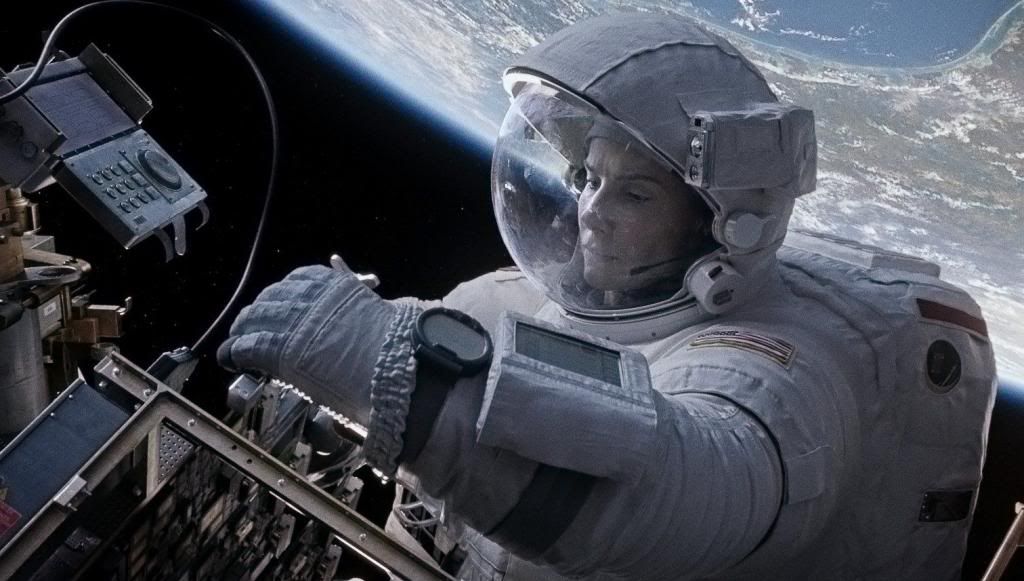I had originally planned to write this post as soon as I got home from seeing Alfonso Cuarón’s Gravity. Aha, thought I, in the dramatic way one always claims to have spoken their internal monologue when recounting its content to others, I shall deliver a post not only on time, but early, and thereby redeem myself in the eyes of my readers! Then I actually saw the film, and those plans changed.
Watching Gravity is an intense experience; I spent a solid couple of hours on something of an adrenaline high after the credits rolled. Most of that time was spent gushing about the film’s many strengths -- stunning visual effects, strong characterization, and tight plotting among them. What really stuck with me, though, was the fact that the character that all of this was built around was a woman.
Gravity tells the story of a space mission that goes disastrously awry when a freak accident knocks out communication with ground control, kills the majority of the mission’s crew, and leaves first-time astronaut Dr. Ryan Stone (played by Sandra Bullock) stranded in the vacuum of space. The rest of the film focuses on the remaining crew members’ fight for survival in, as the film’s opening title card describes, the harshest environment possible.
There’s a lot to say about the character of Dr. Ryan Stone, and it took me very little time to decide to dedicate a full post to her when the film is released on Blu-ray. For now, however, I want to stick to a fascinating and relatively spoiler-free aspect of her treatment: her point-of-view character status. Unlike Alien, which leaves the reveal of its protagonist until pretty late in the game, this sci-fi thriller lets you know very early on that you’re supposed to identify with its female lead. Even before the audience receives confirmation of the deaths of just about everyone else in the movie, we are quite literally aligned with Dr. Stone’s perspective. We see her surroundings through her eyes, through the plastic of her helmet. We don’t just identify with her; we are her. Even beyond the literal point-of-view shots, this character-audience alignment is built into the structure of the film itself. At one point, Dr. Stone is running out of oxygen and on the verge of passing out, madly scrambling to get into a space station just to take a breath. We feel her barely controlled panic, just as we feel cathartic relief when she manages to get inside. The film takes a moment to ease the audience’s tension as well as hers, and we take that first breath with her.
In a recent interview, Sandra Bullock said, “I’d like to think at some point instead of it being a woman’s film or a man’s film, it is just a great story, and both sexes can go and get the same enjoyment out of it. It’s entertainment, you’re not curing cancer. And I would love for it to get to a place where it’s not about the gender of the actor. With Gravity we get as close as you can to that, because there’s nothing about my character that screams female.” While I agree with her main point, I actually think there is something about Ryan Stone that “screams female”: Bullock herself. Sandra Bullock is largely known for her roles in romantic comedies, and there is no genre as implicitly and explicitly feminine-coded as the rom-com. Far from disproving Bullock’s point, however, I think this history supports it. What better way to prove that women can and should be the lead in films in traditionally masculine genres than to make an excellent sci-fi film that crushes box office records starring a woman who made her name in “chick flicks”?

No comments:
Post a Comment